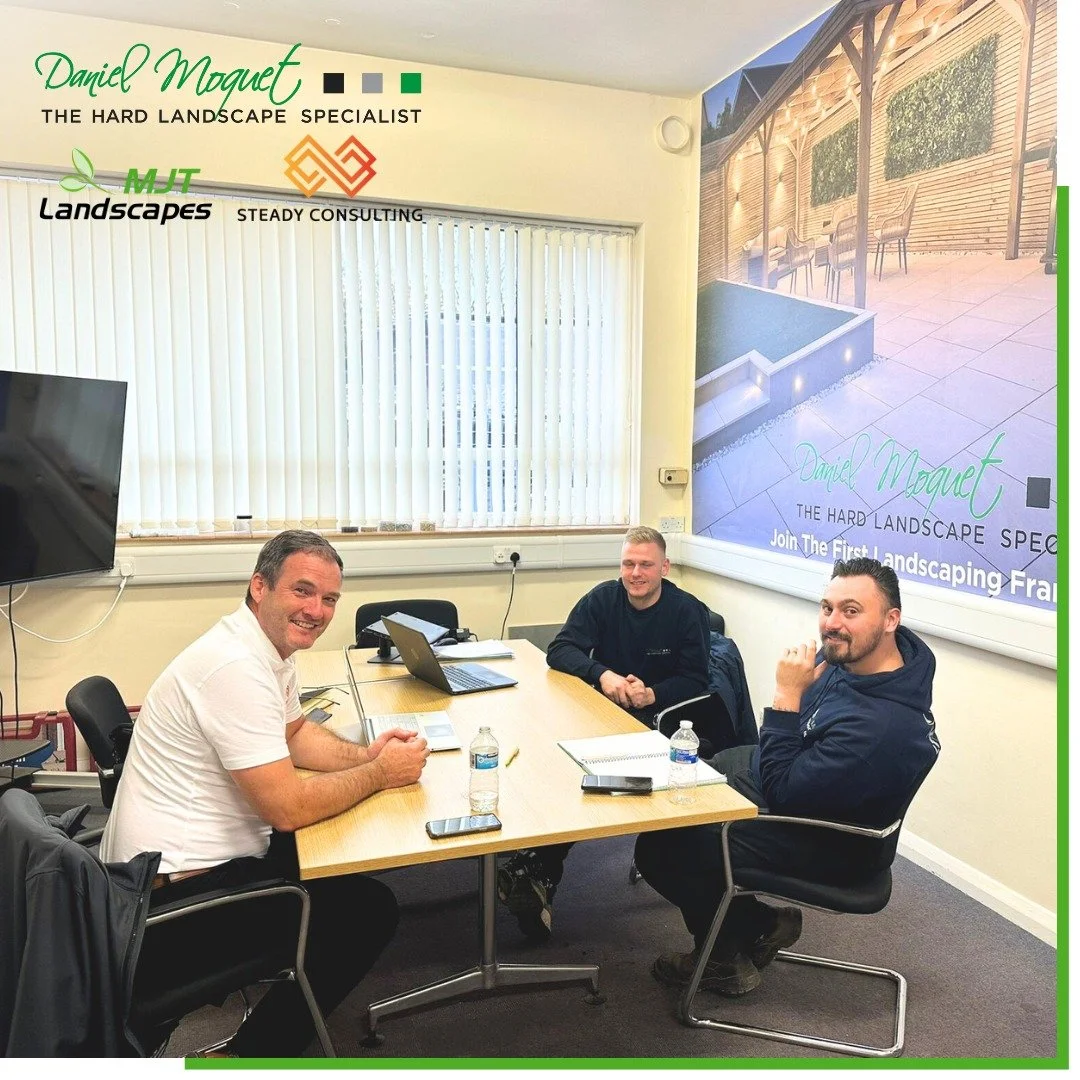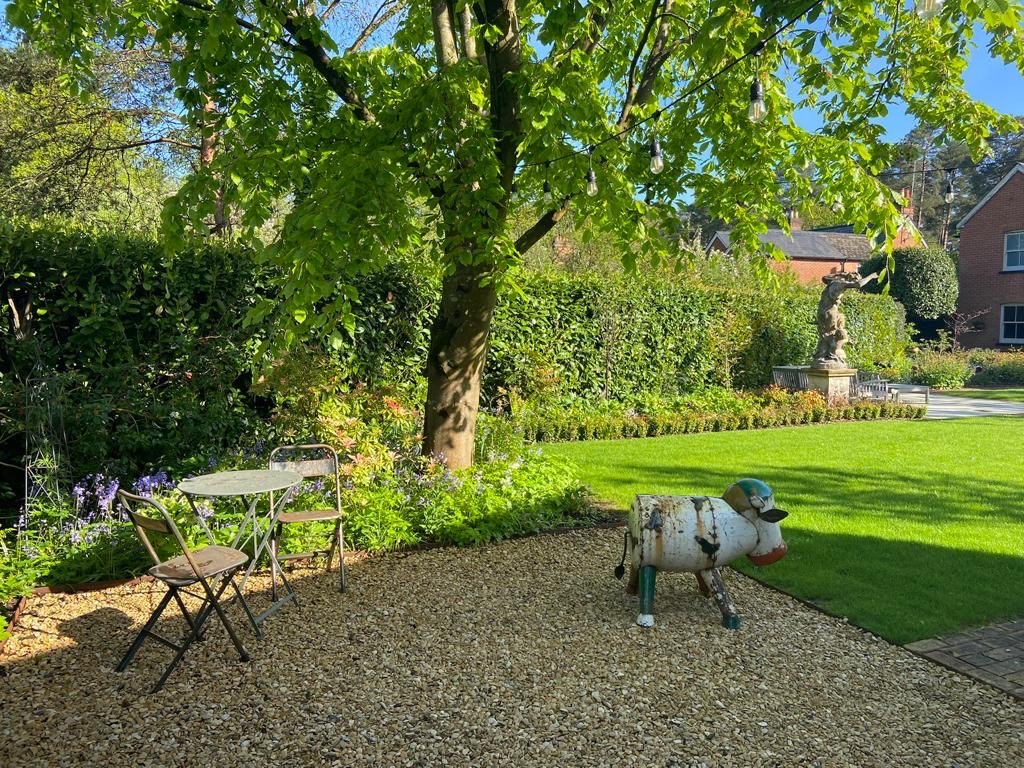The Power of Purpose And How To Create It
In the landscape industry, where the focus is often on delivering beautiful outdoor spaces, many business owners overlook one of the most important foundations of success: a clearly defined Vision, Mission and Core Values.
These elements are more than just business jargon. Together, they form the backbone of a company’s purpose: why you do what you do, where you’re headed, and how you choose to get there. And they’re essential for long-term growth, resilience, and fulfilment - both personally and professionally.
As a business coach working with landscaping professionals across the UK, I’ve seen how clarifying these three pillars can transform energy, focus, and team culture - and ultimately make a positive impact on profitability.
Why the pillars matter
Vision - This is your why. Your long-term destination. Where is your business going? What impact do you want to make in the world or your industry?
Mission – This is your what and for who. It’s what you do every day to move toward your Vision, and should be action-oriented and focused on how you serve your clients.
Core Values – These are your how. The guiding principles and beliefs that define how you do business. They shape culture, decision-making, and relationships.
Individually, each adds clarity. Together, they form a powerful Business Purpose - the deeper reason your business exists beyond simply turning a profit.
The landscape industry needs more purpose-led businesses
Landscaping businesses operate in a space that’s inherently meaningful. You transform environments, enhance wellbeing, support biodiversity, and create places for people to connect. But without clearly articulating that deeper purpose, many business owners find themselves stuck in survival mode - reacting to client demands, juggling staff, or feeling disconnected from the passion that started it all.
Clarity around Vision, Mission, and Core Values gives landscaping companies a strategic compass. It moves them from being task-driven to purpose-driven - building not just a business, but a legacy.
The Difference Between Vision, Mission, and Core Values
1. Vision: Where are you going?
Your Vision should be bold, aspirational and future-focused. It’s not about where you are now, but where you want to be. A strong vision inspires. It provides direction for long-term decisions—from hiring and growth to investment and innovation.
2. Mission: What do you do and for whom?
Your Mission is practical and present-day. It outlines what you do, who you serve, and the unique value you bring. This is the statement you and your team can return to daily to stay on track.
3. Core Values: What do you stand for?
These are the principles that shape behaviour, client service, and internal culture. They should be authentic - not copied from a competitor’s website. When values are clear and consistently lived, they become a filter for hiring, client relationships, and team behaviour.
Why these pillars drive success
1. They guide strategy
Without a clear vision, it’s easy to chase every opportunity - or worse, burn out. Vision and mission help you focus your time, energy and investments where they matter most.
2. They inspire teams
People want to feel part of something bigger. When your team understands and believes in your mission and values, they’re more engaged, loyal, and aligned.
3. They attract the right clients
A purpose-led business stands out. When your values resonate with your clients, they’re more likely to trust you, recommend you, and stay loyal - even when price becomes a factor.
4. They build resilience
Markets change and trends shift, but with a strong sense of purpose, your business can adapt without losing its identity or soul.
How to define your Vision, Mission and Core Values
If you’re not sure where to start, try this process:
Step 1: Reflect on your journey
Why did you start your business?
What moments have made you feel most proud or fulfilled?
What kind of projects energise you the most?
Step 2: Envision the future
Where do you want to be in five or ten years?
What impact do you want your work to have on clients, communities, or the planet?
Step 3: Define Your Values
What behaviours do you praise - or won’t tolerate - in your team?
What do you want your clients to say about working with you?
Involve your team in this process. Their insights can help shape a shared identity that everyone feels part of.
From words to action: Embedding your purpose
Once you’ve defined your Vision, Mission and Core Values, the real work begins: bringing them to life and living them.
Include them in onboarding and staff meetings.
Make them visible on your website, vehicles, and proposals.
Use them to guide decisions - whether it’s who to hire, which projects to take, or how to resolve a conflict.
When they become part of your daily business rhythm, they start influencing results in powerful, measurable ways.
Final thoughts:
In an industry grounded in growth, transformation, and care for the natural world, landscape businesses are uniquely positioned to lead with purpose. Defining your Vision, Mission and Core Values isn’t just an exercise in branding - it’s an act of leadership.
Whether you're a solo operator, a growing team, or an established company, taking the time to articulate what you stand for can refocus your energy, inspire your people, and elevate your impact.
Because in the end, clients may remember the lawns you laid or the patios you built - but what will really stay with them is how you made them feel and why you did it in the first place.
Need help defining your business purpose?
If you’re ready to articulate your Vision, Mission and Core Values but don’t know where to start, let’s have a conversation. As a Business Coach working with landscaping professionals across the UK, I can help you get clear - and take action.
Neil Stead Bio
Neil is an accomplished Business Consultant & Coach with three decades of experience at one of the UK's most respected and trusted brands.
In 2021, he established Steady Consulting to partner with small business owners, guiding them in building stronger, more sustainable businesses - benefiting not only their customers and employees, but also aligning with their own personal aspirations.
Neil focuses his expertise on the horticulture and landscaping industry - delivering tailored, hands-on guidance, strategic advice, and dedicated support to nurture the growth of each business he serves.





